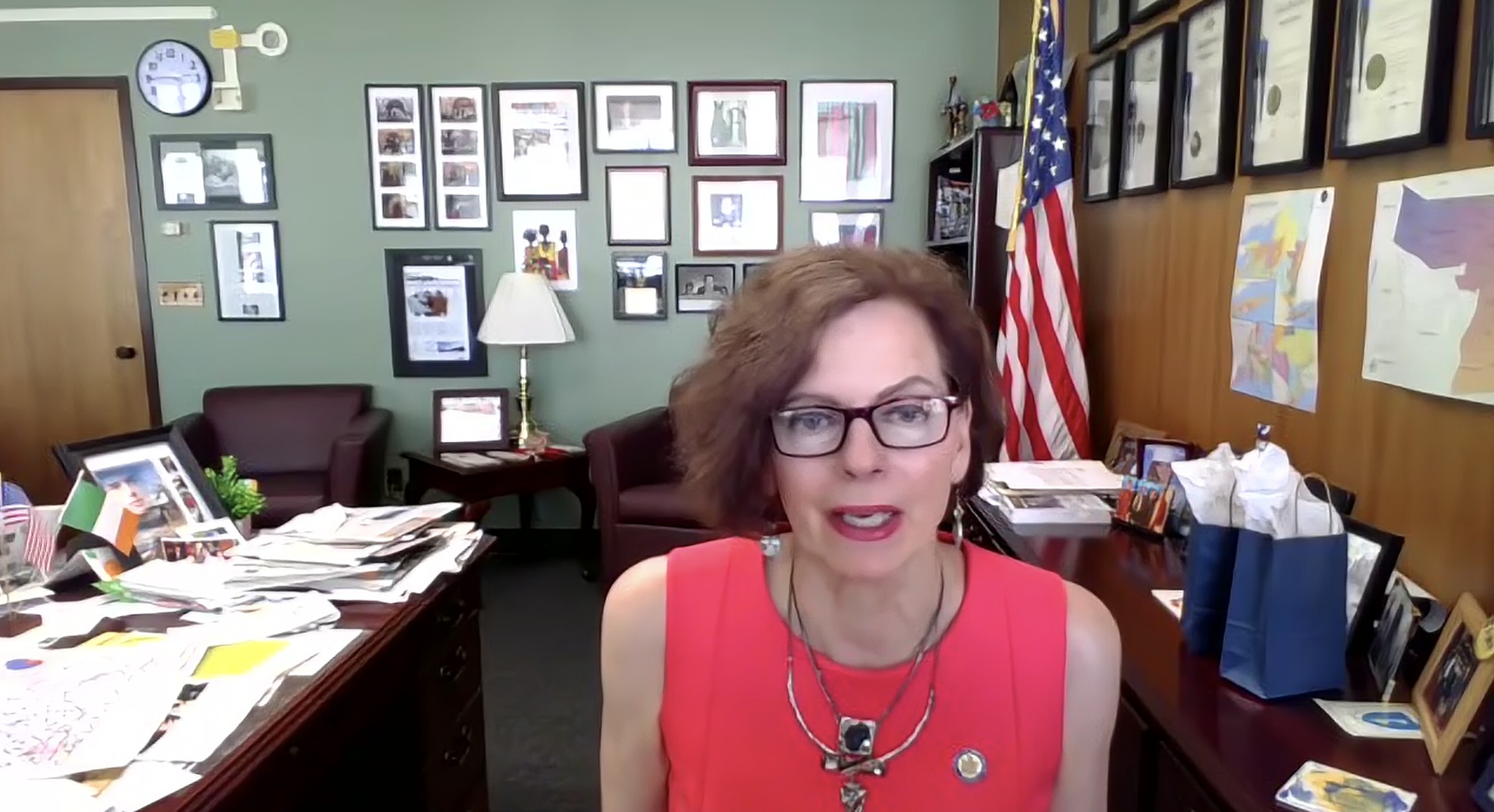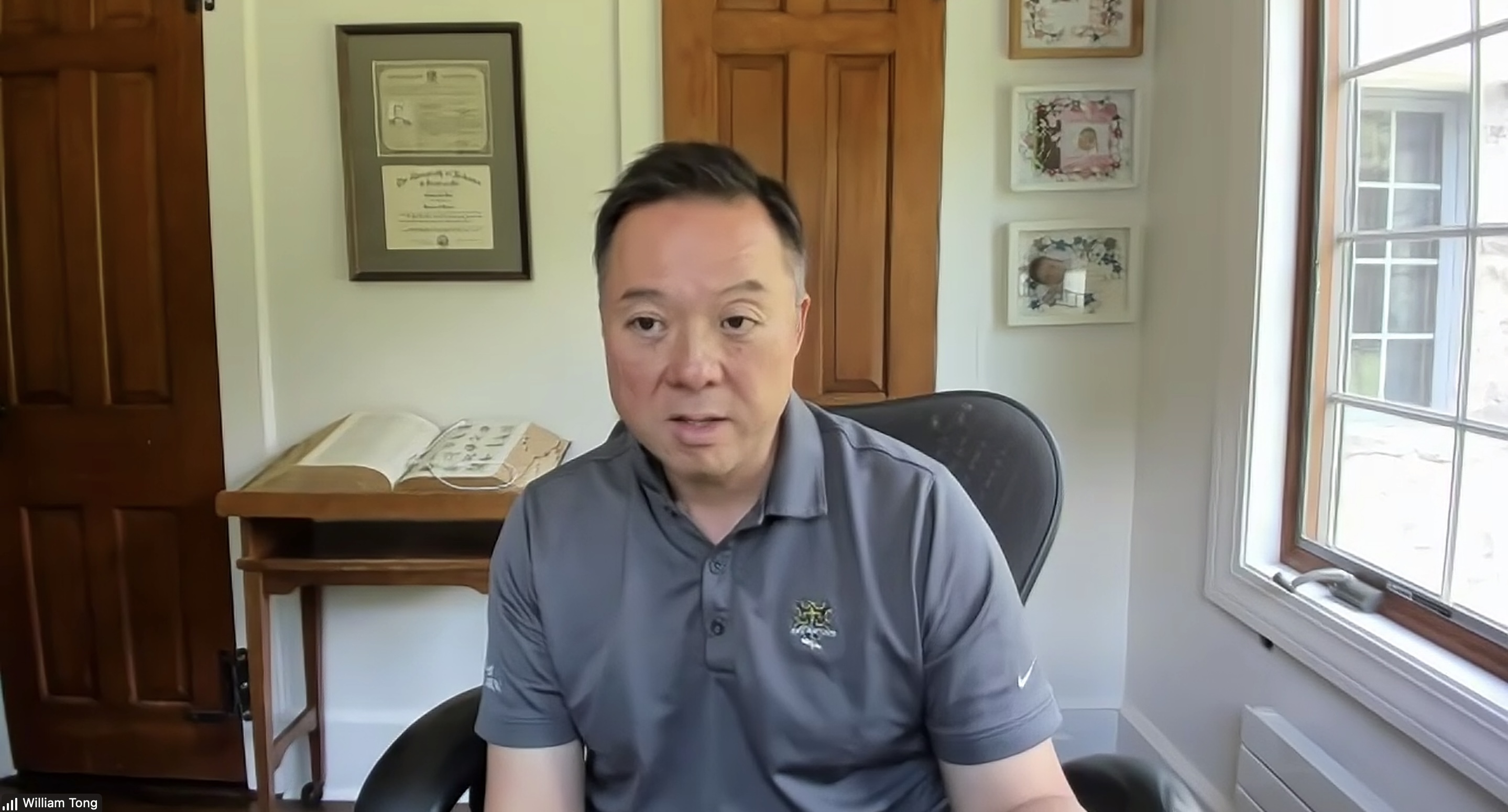
Zoom photos
New York State Sen. Patricia Fahy: If they’re violating civil liberties, they shouldn’t get a break from taxpayers.

Chris Volpe file photo
At an Avelo protest at Tweed in April.
In a growing effort to hold airlines like Avelo accountable for their role in controversial deportation flights, New York State Sen. Patricia Fahy is spearheading legislation that would revoke millions of dollars in jet fuel tax exemptions from carriers found to be violating civil liberties.
Fahy unveiled details of the proposal during a virtual press conference Wednesday, hosted by a national group called Coalition to Stop Avelo.
The conference featured Connecticut Attorney General William Tong and advocates from across the country pressing for transparency and action against Avelo Airlines, which activists say is profiting from deportation flights contracted by the U.S. Department of Homeland Security (DHS).
New Haven has been an epicenter for the boycott movement against Avelo, as the budget airline flies 30 passenger-travel direct routes from Tweed New Haven Airport, even as it’s spent the past nearly two months running deportation flights from a separate airport in Arizona.
The airline, facing financial pressures, has defended its DHS partnership as necessary at a time of increased competition to its New Haven passenger-travel business. Activists and officials from across Connecticut and the country have continued to criticize Avelo’s role in migrant removals.
Meanwhile, at Wednesday’s online press conference, Fahy, who represents Albany in the New York State Senate, explained the rationale behind her new legislative proposal. “It’s leveraging our proprietary authority over public airport contracts here in New York to say that it is part of the state oversight contractual authority that airlines have to uphold Constitutional rights,” she said.
Fahy’s bill targets New York’s jet fuel tax exemption — described by Fahy as “very, very generous” — that saves airlines between $11 million and $17 million statewide each year. Under the proposal, airlines engaged in deportation flights that undermine due process would lose that tax benefit.
The legislation, titled the State Airport Facilities Enforcing Accountability in Immigration Removals (SAFE AIR) Act, aims to ensure that no state agency, department, or locality in New York enters into or renews contracts with airlines that transport individuals detained for deportation without a valid judicial warrant or order from a federal judge or magistrate — not merely an administrative immigration detainer — and proof that the individual has been afforded due process rights, including access to counsel and a hearing before an immigration judge.
Introduced in May, the bill is currently under consideration in the New York State Senate’s Committee on Procurement and Contracts. It has not yet passed.
The SAFE AIR Act would also amend state tax law to deny fuel tax exemptions to airlines that fail to meet these standards, while protecting carriers that comply with valid court orders or lawful federal mandates. It empowers the state attorney general to seek injunctive relief or civil penalties against violators.
“This is the first private-sector contract we’re aware of between ICE and a commercial airline,” Fahy said, referring to Avelo’s alleged cooperation with DHS. “If they’re violating civil liberties, they shouldn’t get a break from New York taxpayers.” (Avelo has also been the beneficiary of a Connecticut state aviation fuel tax break.)
During his remarks at Wednesday’s presser, Connecticut Attorney General Tong echoed Fahy’s stance, urging states to reconsider economic support for companies engaged in harmful practices.
Tong said Avelo refused to provide information about its relationship with DHS and instead told the state to file a Freedom of Information Act request — a response he called dismissive of a state that has offered the airline significant support. He also criticized Avelo’s claim that working with DHS is essential to its survival, arguing no business model should depend on profiting from others’ suffering.
“When I heard what Avelo is doing to immigrants and families in total violation of the law and without regard to due process — and if Avelo says, ‘Well, that’s not us, that’s DHS, that’s ICE.’ No, sorry. You’re part of the deal, too,” Tong said.
“We are considering all of our legal options and legislative options to get more information, number one,” Tong added, “and if we’re unhappy with what we see and understand from Avelo, to not do business with them and not to be their partner.”
When asked about the criticism, Avelo spokesperson Courtney Goff wrote to the Independent Wednesday, “We recognize the right of individuals to peacefully assemble and assert their freedom of speech. Avelo’s main priority continues to be maintaining the safety and timeliness of our operation that over 7.3 million Customers across the country continue to enjoy.”
The press conference, organized by the Coalition to Stop Avelo, highlighted the growing grassroots and legislative movement opposing the use of commercial airlines in deportation operations. Advocates from Delaware, Michigan, Tennessee, and other states joined Fahy and Tong in calling for stronger accountability measures and the end of taxpayer subsidies for airlines tied to immigration enforcement.
The Coalition continues to coordinate protests, boycotts, and legislative campaigns nationwide, with new local actions planned in the coming weeks to pressure airlines, investors, and public officials, including protests set to take place this weekend in states such as New York, Florida, and Michigan.

Adam Walker Photos
CT Attorney General Tong at Wednesday's online presser.